When Caregiving is Over: The Well-Being of Caregivers
of Parents with Dementia
By Marla Berg-Weger, Ph.D., LCSW, Doris McGartland Rubio, Ph.D.
Susan Tebb, Ph.D., LSW and Lisa A. Parnell, MSW
Gaining insights into the former caregiver’s well-being can provide valuable information for working with caregivers before and during their caregiving experiences. Broadening the scope of the caregiving continuum to include the pre- and post-caregiving phases re-defines caregiving as a multi-faceted and complex phenomena.
Former caregivers find that the period following the death of their family member can be at one in which they reflect on and process the caregiving experience. The grief experience of caregivers of elders suffering from a dementing illness is a unique one, in many ways. Due to the loss of the elderly family member’s cognitive and physical function over a period of time, caregivers report that they often begin the grieving process before the actual death. For this group of caregivers, a sense of relief may occur when the care-recipient dies.
In a recent study of daughters who had cared for an elderly parent who suffered from Alzheimer’s disease or a related disorder, but had since died, researchers report two critical findings that can benefit professionals working with family caregivers:
1) Well-being and ability to meet one’s basic needs are both higher for former caregivers than for non-caregivers. These findings suggest that, while caregiving can be stressful, the negative effects are not sustained into the post-caregiving phase. The authors speculate that post-caregivers may develop effective management skills during their caregiving experience that are carried over into the post-caregiving phase. Professionals and caregivers alike know that caring for a family member suffering from a dementing illness such as Alzheimer’s disease, while stressful, can equip them with skills to better meet their basic needs.
Learning that former caregivers possess a higher level of well-being than those who have not provided care can guide the professional in working with caregivers who are in the pre-caregiving and active caregiving phases. This finding builds on the concept that self-care and attaining a balance in one’s life is critical at all times, but particularly important for the person who is anticipating and/or engaged in caring for a relative with dementia. Working with caregivers and pre-caregivers to mobilize and utilize resources and support systems and develop a management approach to caregiving may additionally contribute to their enhanced post-caregiving well-being.
2) Post-caregivers’ income levels are higher than the comparison group. This finding suggests several potential explanations. First, former caregivers’ income may have improved following the death of the loved one as a result of decreased expenditures related to caregiving, thus relieving the financial drain often associated with caring for a chronically ill person. Secondly, because caregivers tend to be older than non-caregivers, they may have accumulated a higher level of income and/or financial resources. Lastly, this finding suggests that the caregiver sought out paid employment, having been relieved of the role of caregiver.
Professionals working in the area of caregiving and caregivers themselves can use such a research finding to engage pre-, active and post-caregivers in discussions about financial management. Such dialogue may include the development of a budget, financial planning, employment status and/or seeking financial support for outside sources.
In applying the lessons learned from this research effort, the following strategies may be helpful for professionals and caregivers striving to promote well-being among caregivers at all stages of caregiving from a strengths-based perspective:
1) Assessment—Conduct regular and ongoing assessments of caregiver well-being. The Caregiver Well-Being Scale is a tool that can be used with individual caregivers and multiple members of a caregiving team at various points along the caregiving continuum. The scale can highlight the pre- and current caregiver’s strengths and resources, while, at the same time, aid the professional and the caregiver in developing strategies for change. Using the scale on a routine basis can help the caregiver(s) realize improvements and areas for continued work. For the former caregiver, the scale can be a working assessment of his/her navigation through the post-caregiving and bereavement period.
2) Intervention—Strengths-based interventions aimed at enhancing the caregiver’s well-being can flow from the ongoing assessment. Professionals and caregivers can determine the most viable ways in which to operationalize the intervention(s). Priorities may be altered with changes in the care-recipient and/or caregiver status and external environment; therefore, practitioners should re-visit the assessment and intervention process on a regular basis. Examples include activities related to:
Establishing realistic goals and expectations related to caregiving
Developing and creating assets and resources of the caregiver, care-recipient and support system
Confronting challenges to well-being (obstacles and weaknesses)
Identifying formal and informal needs and ways to access help
Prioritizing self-care goals and strategies for achieving those goals
Feelings about being a caregiving, to include positive and negative
Time management in caregiving and, in general
Ways caregiver spend his/her leisure time
The future—life beyond caregiving (social, emotional and financial)
3) Evaluation—Evaluative strategies should be woven through the caregiver intervention process to assist the professional and the caregiver in determining progress toward achievement of goals. The professional may further find that evaluating caregiver interventions can aid in identifying program needs and innovations. Using the wisdom and experience of the current and former caregiver can strengthen the services provided for the caregiving community.
--------------------------------------------------------------------------------
Marla Berg-Weger, Ph.D., LCSW is Associate Professor, Saint Louis University School of Social Service. Doris McGartland Rubio, Ph.D. is Associate Professor
Saint Louis University Department of Research Methodology. Susan S. Tebb, Ph.D., LSW is Associate Professor, Dean Saint Louis University School of Social Service and Lisa A. Parnell, MSW is Graduate Research Assistant Saint Louis University School of Social Service.
1 This research was funded by the Alzheimer’s Disease and Related Disorders Program, University of Missouri, Columbia, Missouri. 2 This article is an excerpt from the original article entitled, “Comparing the well-being of post-caregivers and non-caregivers,” American Journal of Alzheimer’s Disease and Other Dementias, 16(2), 97-101. 3Corresponding Author: Saint Louis University School of Social Service, 3550 Lindell Boulevard, St. Louis, MO 63103; 314/977-2726 (Telephone); 314/977-2581(Fax); bergwm@slu.edu (e-mail).
Subscribe to:
Post Comments (Atom)
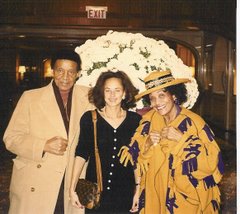
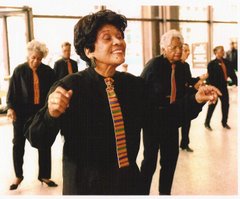
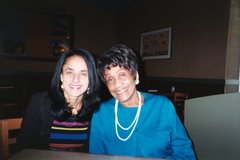

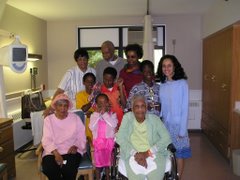

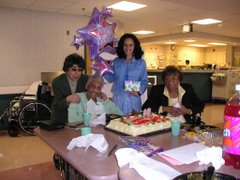
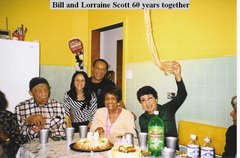
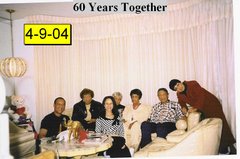
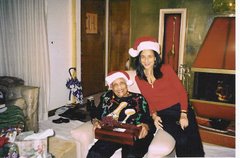
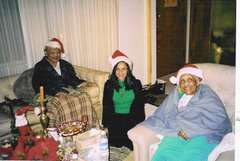
.jpg)
No comments:
Post a Comment